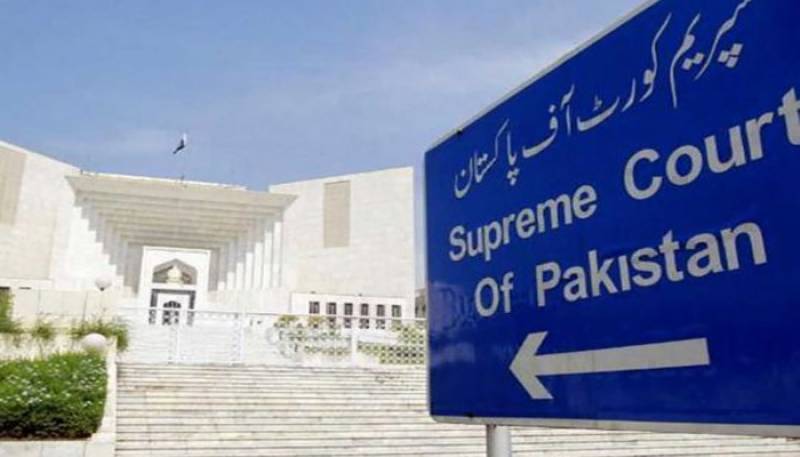Islamabad (Web Desk): The Supreme Court (SC) on Thursday adjourned the hearing on the petitions challenging the controversial Supreme Court (Practice and Procedure) Act 2023, that aims at curtailing the powers of the chief justice of Pakistan (CJP) till next week after Attorney General for Pakistan (AGP) Mansoor Usman Awan said the federal government had decided to review the legislation.
Earlier, the 8-member bench headed by Chief Justice of Pakistan (CJP) Umar Ata Bandial, and comprising Justice Ijazul Ahsan, Justice Munib Akhtar, Justice Sayyad Mazahar Ali Akbar Naqvi, Justice Muhammad Ali Mazhar, Justice Ayesha Malik, Justice Syed Hasan Azhar Rizvi and Justice Shahid Waheed resumed hearing the pleas.
Three separate petitions were filed by Raja Amer Khan, Chaudhry Ghulam Hussain and Mohammad Shafay Munir, among others, under Article 184(3) of the Constitution, asking the top court to set aside the bill.
In the previous hearing, on May 8, the court had directed the Attorney General for Pakistan (AGP) Usman Mansoor Awan to submit the record of the National Assembly's (NA) proceedings on the judicial reforms.
Then observing that the case required further assistance and arguments from other parties, the top court said that the matter could not be concluded the same day and adjourned the court for three weeks.
The court had also issued notices to all parties involved in the matter, directing them to issue a response.
Ahead of today's hearing, Pakistan Muslim League-Quaid (PML-Q) submitted its response to the apex court’s notice and requested that the court discard the petitions.
The PML-Q claimed that the Act would neither increase nor decrease the independence of the judiciary.
“Section 4 of the Act broadens the jurisdiction of the Supreme Court, and Section 3 does not curtail the exercise of the Judiciary's s 184(3) power,” the response stated.
It further said that section 3 simply calls for the chief justice to exercise the power of self-notice in conjunction with senior judges.
"Instead, it submitted that the committee's use of suo motu powers to hear cases will enhance the public’s trust in the judiciary," the PML-Q added.
The response further stated that former CJPs including Iftikhar Chaudhary, Gulzar Ahmed, and Saqib Nisar used their powers proactively, and the results came in the form of Steel Mill, PKLI and Nasla Tower.
"Such consequences could have been avoided by legislation such as the one under dispute," the PML-Q said in its response submitted to the top court.
The Supreme Court (Practice and Procedure) Act 2023, which is aimed at regulating the powers of the CJP, was approved by the Parliament during a joint sitting on April 10.
The National Assembly, on April 21, notified the Supreme Court (Practice and Procedure) Bill 2023 as an act.
On April 13, the SC issued notices to the federal government, Attorney General of Pakistan (AGP) Mansoor Awan, political parties, the Pakistan Bar Council (PBC) and the Supreme Court Bar Association (SCBA).
Regarding exercising the apex court’s original jurisdiction, the bill said that any matter invoking the use of Article 184(3) would first be placed before the above mentioned committee.
The bill says that if the committee is of the view that a question of public importance with reference to the enforcement of any of the fundamental rights conferred by Chapter I of Part II of the Constitution is involved, it shall constitute a bench comprising not less than three judges of the Supreme Court of Pakistan which may also include the members of the committee, for adjudication of the matter.
On matters where the interpretation of the Constitution is required, the bill said the above mentioned committee would compose a bench comprising no less than five apex court judges for the task.
Regarding appeals for any verdict by an apex court bench that exercised Article 184(3)‘s jurisdiction, the bill said that the appeal will lie within 30 days of the bench’s order to a larger Supreme Court bench. It added that the appeal would be fixed for hearing within a period not exceeding 14 days.
It added that this right of appeal would also extend retrospectively to those aggrieved persons against whom an order was made under Article 184(3) prior to the commencement of the Supreme Court (Practice and Procedure), Bill 2023, on the condition that the appeal was filed within 30 days of the act’s commencement.


